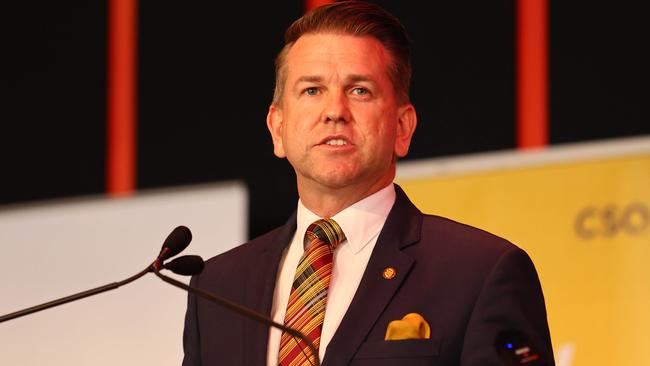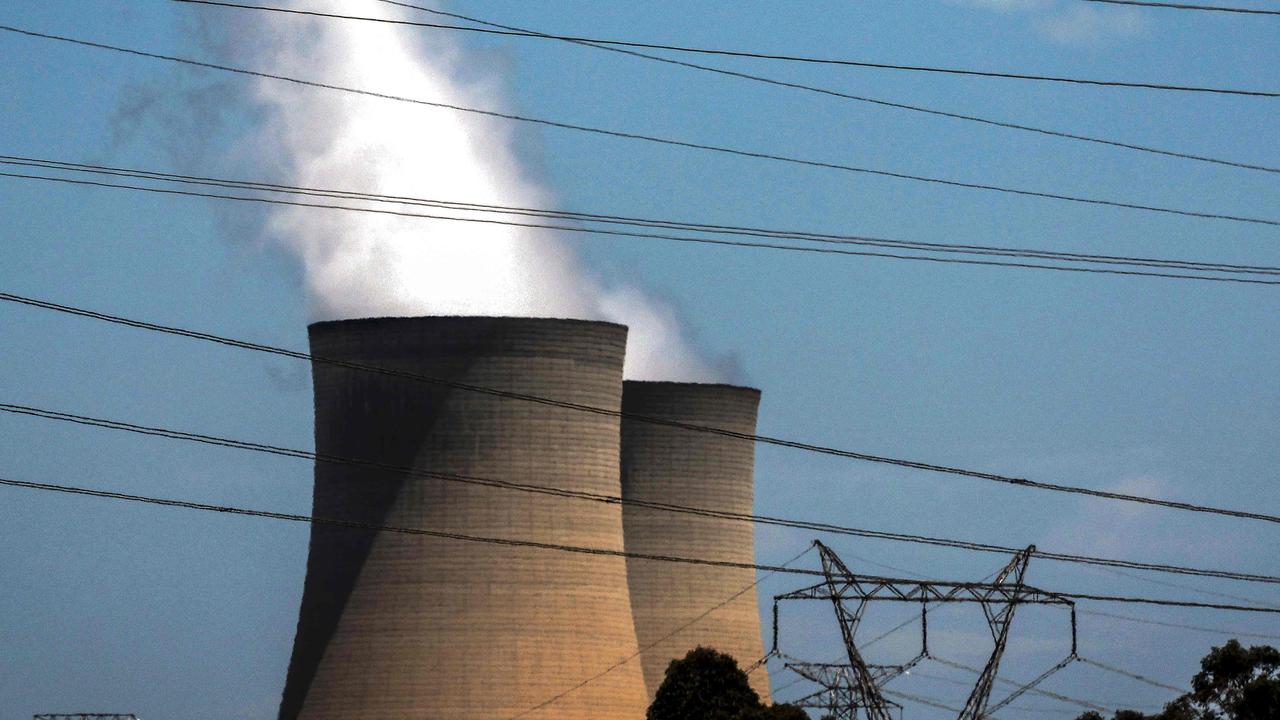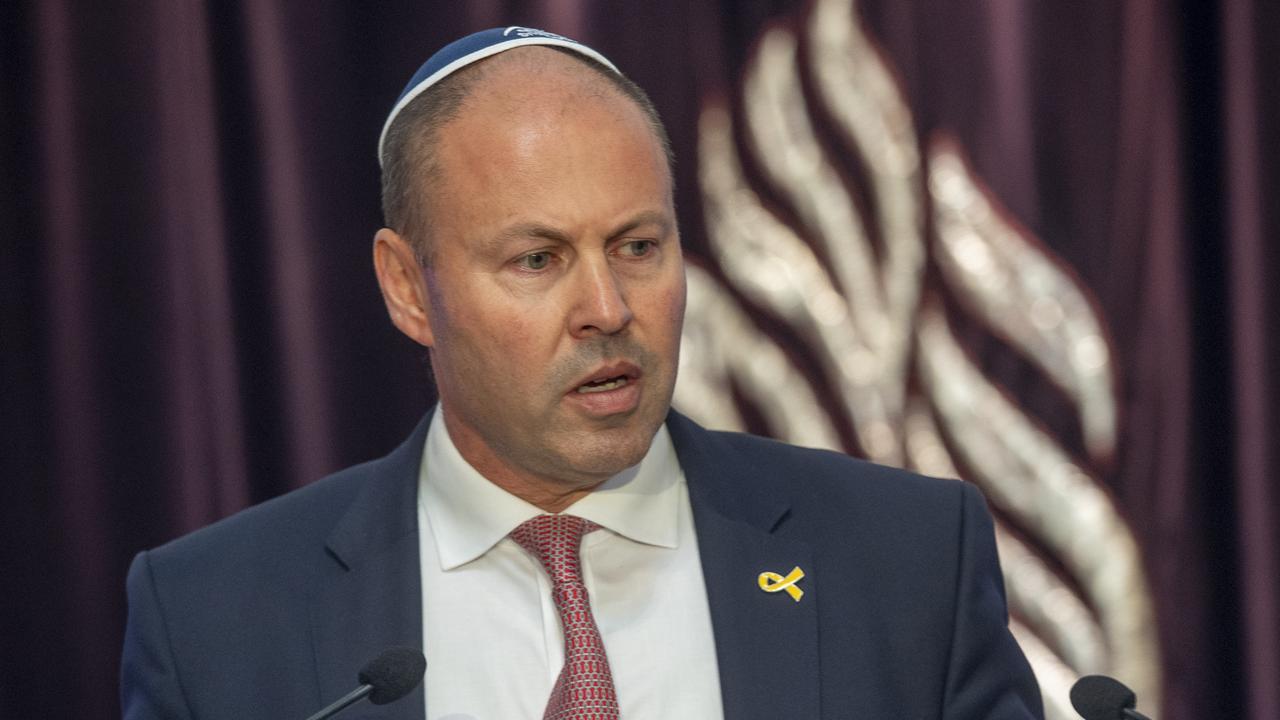Editorial: Cancelling BPICs is good for the state
The cancellation of the state’s BPIC policy will do away with largesse that would never pass the most cursory of pub tests, writes the editor.

Opinion
Don't miss out on the headlines from Opinion. Followed categories will be added to My News.
The Queensland Council of Unions is guilty of some serious hyperbole in its response to the inevitable cancellation of the previous Labor government’s biggest capitulation to the union movement – the Best Practice Industry Conditions policy, known officially as BPIC but informally as the CFMEU tax.
The BPIC policy was ostensibly all about providing best-practice workplace safety, the cover story often used by the now former Labor ministers responsible.
But what it was actually all about was giving the members of the militant – now in-administration – CFMEU the best conditions imaginable on the relevant government worksites.
As The Courier-Mail led the way in exposing, among these crazily generous conditions was double-time pay when it rains, a full month of rostered days off each year, and an extra $1000 a week when having to work away from home. The policy locked in 5 per cent annual pay rises through to 2027.
Former premier Steven Miles repeatedly defended the policy as his government looking after workers, but the conditions were far above and beyond what teachers, nurses and police officers are given – and sparked days of outrage when, in April, we revealed the details of the extraordinary deals.
The cancellation of the BPIC policy for all future government-funded projects will do away with all of this remarkable largesse that would not ever pass the most cursory of pub tests.
It will not – as the secretary of the Queensland Council of Unions, Jacqueline King, breathlessly claimed yesterday – lead to “third-World Olympic venues built off the back of overseas workers and with industry fatality rates up there with the Qatar World Cup”.
Instead, the cancellation of the BPIC policy will see productivity and costs in the construction sector return to the realms of reality – and make private projects stack up again. This, in turn, will lead to the state’s housing supply one again meeting demand – and so keep a lid on the housing crisis in the lead-up to the 2032 Games.
Treasury analysis released this week revealed the BPIC policy would have led to 22,000 fewer homes being constructed between now and 2030, and drive housing rents up by an average 7 per cent.
The BPIC cancellation will also, of course, bring taxpayer spending on venues back under control.
It is not surprising, however, that the state’s unions lined up yesterday to yell at the government and make similar sky-is-falling claims as those made by Ms King. That is because their direct line to government ministers willing to burn taxpayer cash in cutting them extraordinary deals is now severed with the election of the Crisafulli LNP government – and the mandate it clearly has to bring reasonableness back to negotiations between the government and unions.
The critical point on this made by Deputy Premier and Industrial Relations Minister Jarrod Bleijie yesterday was that the “Workplace Health and Safety Systems and standards and best practice commitment to apprenticeships and trainees” under BPICs would be preserved. This is important as safety should always be the priority.
But the crazy deals done by the previous government for unionised workers in the construction sector were so far beyond the pale there needed to be a reckoning.
The Courier-Mail welcomes this development because it is, on every measure, good for the state.
EARLY PRESENT FOR BORROWERS, PM
National Australia Bank’s decision yesterday to go it alone and cut its basic variable home loan interest rate by 0.4 percentage points was as unexpected as it was welcome.
An early Christmas present for NAB borrowers, the bank acted unilaterally, not waiting for the RBA to lower official rates first.
It will mean a saving of $126 a month on a $500,000 loan.
Borrowers will be hoping that it’s the first cut of many, as we now move into an expected cycle of rate cuts in 2025.
However, experts say the cut is also a sign of fierce competition between the big four banks.
Either way, it’s welcome good news, particularly for Prime Minister Anthony Albanese and Treasurer Jim Chalmers.
Earlier this week, Mr Chalmers moved to ease expectations of tumbling rates in 2025, pointing to the impact of Donald Trump’s election and the possibility of a trade war between the US and China.
He said Australia was well placed to weather any international storm, but conceded that there might be upward pressure on inflation, which might put rate cuts in jeopardy.
Next year’s federal election
will largely be fought on the cost
of living.
As we saw in the US, the simple question “are you better off now than you were three or four years ago” is a powerful one.
Mr Chalmers and Mr Albanese will be hoping the NAB rate cut is the first of many.
Responsibility for election comment is taken by Chris Jones, corner of Mayne Rd & Campbell St, Bowen Hills, Qld 4006. Printed and published by NEWSQUEENSLAND (ACN 009 661 778). Contact details here




